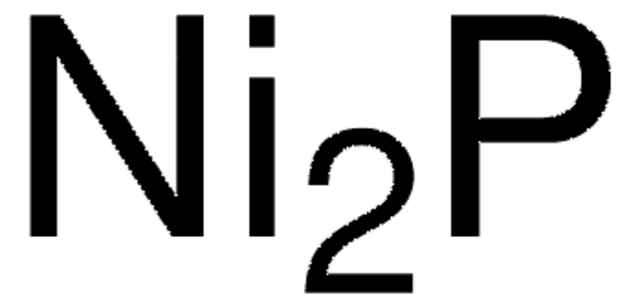283622
Nickel(II) hydroxide
Sinónimos:
Nickel dihydroxide, Nickelous hydroxide
About This Item
Productos recomendados
grado
reference material
Nivel de calidad
Formulario
powder
concentración
60.0-70.0% Ni (EDTA titration)
mp
230 °C (lit.)
densidad
4.1 g/mL (lit.)
aplicaciones
battery manufacturing
cadena SMILES
O[Ni]O
InChI
1S/Ni.2H2O/h;2*1H2/q+2;;/p-2
Clave InChI
BFDHFSHZJLFAMC-UHFFFAOYSA-L
¿Está buscando productos similares? Visita Guía de comparación de productos
Aplicación
Palabra de señalización
Danger
Frases de peligro
Consejos de prudencia
Clasificaciones de peligro
Acute Tox. 4 Inhalation - Acute Tox. 4 Oral - Aquatic Acute 1 - Aquatic Chronic 1 - Carc. 1A Inhalation - Muta. 2 - Repr. 1B - Resp. Sens. 1 - Skin Irrit. 2 - Skin Sens. 1 - STOT RE 1 Inhalation
Órganos de actuación
Lungs
Código de clase de almacenamiento
6.1D - Non-combustible acute toxic Cat.3 / toxic hazardous materials or hazardous materials causing chronic effects
Clase de riesgo para el agua (WGK)
WGK 3
Punto de inflamabilidad (°F)
Not applicable
Punto de inflamabilidad (°C)
Not applicable
Equipo de protección personal
Eyeshields, Faceshields, Gloves, type P3 (EN 143) respirator cartridges
Elija entre una de las versiones más recientes:
¿Ya tiene este producto?
Encuentre la documentación para los productos que ha comprado recientemente en la Biblioteca de documentos.
Los clientes también vieron
Artículos
Thermoelectric Performance of Perovskite-type Oxide Materials
Lithium-Ion Battery Performance: Dependence on Material Synthesis and Post‑Treatment Methods
The prevailing strategies for heat and electric-power production that rely on fossil and fission fuels are having a negative impact on the environment and on our living conditions.
Plasmonic nanoparticles have unique optical properties that can be tailored to suit a variety of applications in the biotechnology1–8 and electronics9–16 industries.
Nuestro equipo de científicos tiene experiencia en todas las áreas de investigación: Ciencias de la vida, Ciencia de los materiales, Síntesis química, Cromatografía, Analítica y muchas otras.
Póngase en contacto con el Servicio técnico














